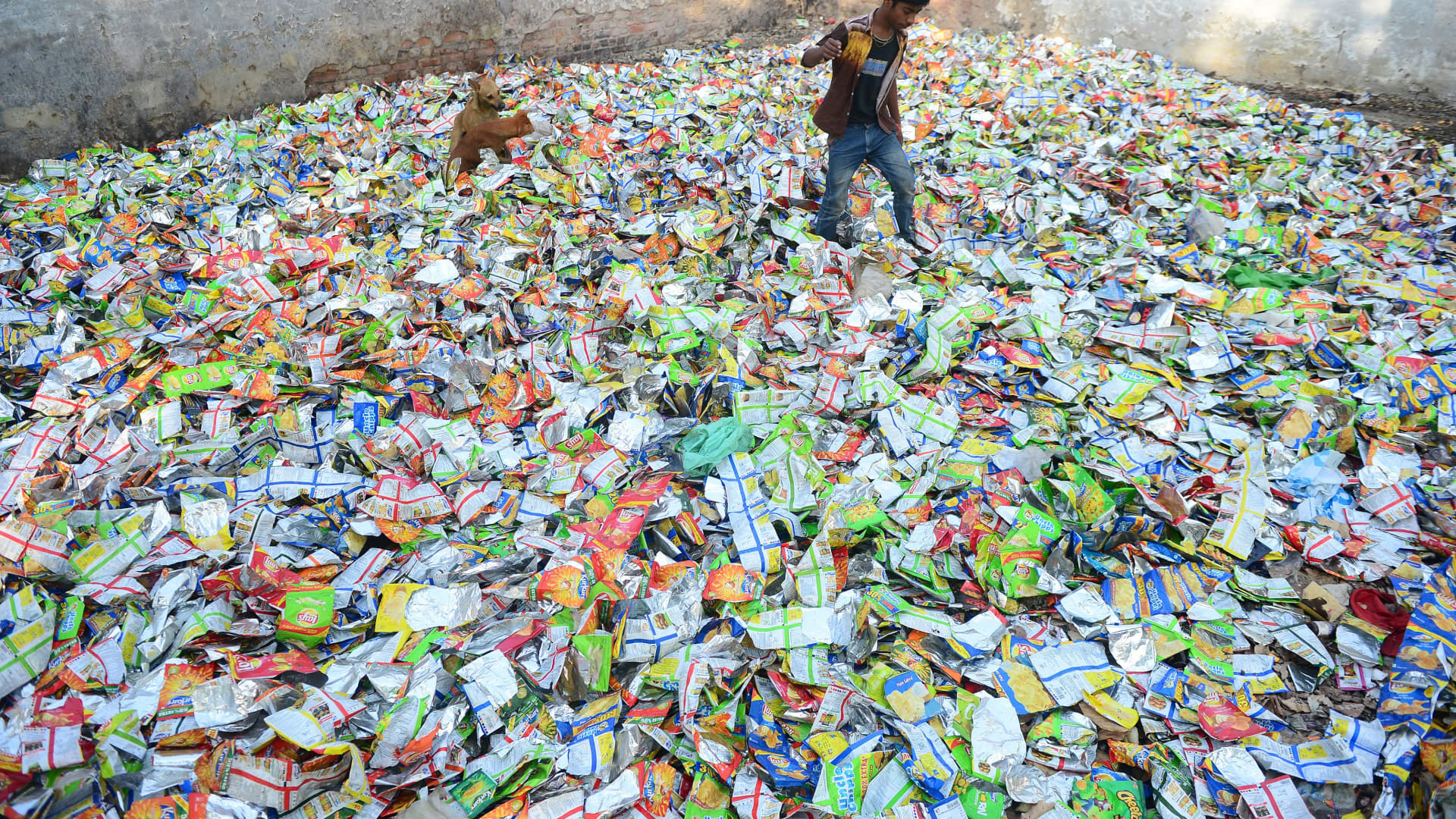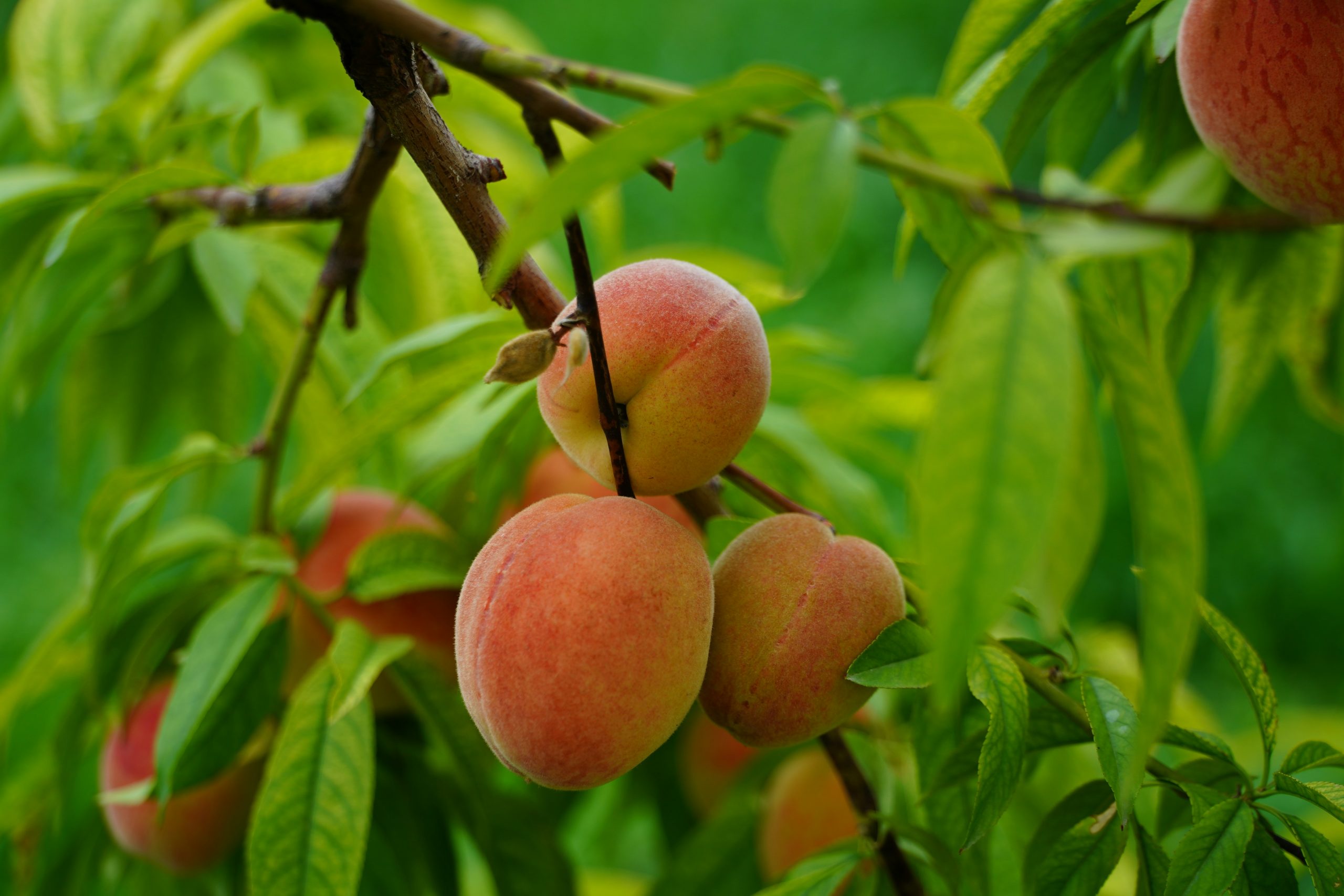Wheat prices jump by nearly 6% after Russia withdraws from vital Ukrainian export deal
Global wheat prices have risen following Russia's withdrawal from the Black Sea grain export deal.

Farmers are seen harvesting wheat in Druzhkivka, Ukraine on 7 August, 2022.
Anadolu Agency | Anadolu Agency | Getty Images
Global wheat prices rose sharply Monday following Russia's withdrawal from the Black Sea grain export deal over the weekend.
The most active wheat contract on the Chicago Board of Trade jumped 5.8% to $8.77 a bushel by around 6 a.m. ET time after earlier hitting a high of $8.93 a bushel. Corn and soybean prices have also risen but to a lesser extent with corn futures up 2.6% and soybean futures climbing 0.7%.
The increases come after Russia announced Saturday that it was suspending its involvement in the Black Sea Grain Initiative, which allowed vital agricultural products to be exported from several Ukrainian ports.
Russia announced it was withdrawing from the deal for an indefinite period after it accused Ukraine of a "massive" drone attack on the Black Sea Fleet in Sevastopol in Crimea.
Ukraine has not said whether it was responsible for the attack and President Volodymyr Zelenskyy said Russia's withdrawal from the initiative was "rather predictable."
Ukraine's Foreign Ministry said, meanwhile, that Russia had suspended its participation in the grain deal on "a false pretext of explosions 220 kilometers away from the grain corridor" and that by doing this, it was blocking "two million tons of grain on 176 vessels already at sea."
Zelenskyy and Foreign Minister Dmytro Kuleba accused Russia of starting to sabotage the grain deal in September.
CNBC has contacted Russia's Foreign Ministry for comment. Russia's ambassador to the U.S., Anatoly Antonov, has hit back at Washington's accusations that Russia is aggravating the global food problem. Antonov told Russian media on Saturday that Kyiv's "reckless actions" had caused Moscow to suspend implementation of the grain deal.
A photograph shows anti-tank obstacles on a wheat field at a farm in southern Ukraines Mykolaiv region, on June 11, 2022, amid the Russian invasion of Ukraine.
Genya Savilov | AFP | Getty Images
Moscow has been accused of weaponizing key exports such as gas and wheat since the start of the war in February, both in a bid to pressure the international community and in order to receive sanctions relief. Moscow has denied this and accused Ukraine of mining its waters, hence preventing the safe export of agricultural produce such as wheat, corn and rapeseed that many countries rely upon.
Many of the grain ships that left Ukraine in recent months, under the grain deal, were bound for both European and African ports.
Ukraine's president said Sunday night that Moscow's withdrawal from the grain initiative, which was due to be renegotiated in November in any case, would exacerbate a global food crisis with countries in Africa, and particularly Ethiopia, at risk of a severe famine.
An aerial view of Sierra Leone-flagged dry cargo ship Razoni which departed from the port of Odesa Monday, arriving at the Black Sea entrance of the Bosporus Strait, in Istanbul, Turkey, on August 3, 2022.
Anadolu Agency | Anadolu Agency | Getty Images
Moscow's move was "an absolutely transparent intention of Russia to return the threat of large-scale famine to Africa and Asia," Zelenskyy said Sunday, adding that "access to food has actually worsened for more than seven million consumers."
'The food must flow'
The United Nations and Turkey, which helped Ukraine and Russia to reach the grain deal in July, were scrabbling to rescue the initiative on Sunday and said they had agreed a plan with Ukraine to help move 16 vessels (12 outbound and four inbound) that were stuck within the established maritime corridor.
The organization overseeing grain exports, the Joint Coordination Centre, added in a statement Sunday that "in order to continue fulfilling the Initiative, it was proposed that the Turkish and United Nations delegations provide tomorrow [Monday] 10 inspection teams aiming to inspect 40 outbound vessels."
The inspection plan had been accepted by the delegation of Ukraine while the Russian Federation delegation had been informed, it said.
Amir Abdulla, U.N. coordinator for the Black Sea Grain Initiative, tweeted Monday that "civilian cargo ships can never be a military target or held hostage. The food must flow."
Whether Russia can be persuaded to rejoin the deal is uncertain although it has requested a meeting with the U.N.'s Security Council on Monday to discuss the issue. France's agricultural minister, meanwhile, said that France was working toward allowing Ukraine to export food supplies via land routes through Poland or Romania rather than the Black Sea route currently used.
Analysts agree that Russia's withdrawal from the deal does not bode well for global food commodity prices or inflation expectations.
The withdrawal is the "latest event of discouraging signals from Russia on a renewal of the grain corridor agreement" that was due to take place on Nov. 19, according to Jesper Buhl, an analyst at Bull Positions.
Buhl said in a note Saturday that markets should expect increased uncertainty of Ukraine port operations, vessel movements and grain flows in the coming weeks and months. "This puts serious downside risk to the previous conclusion related to the capped flow potential of Ukraine grain flows," he said.
"These rumbling are likely to continue in the coming weeks, also influenced by any material changes on the battlefields, and add uncertainty to the continuation of the current grain corridor agreement and the continued flows of grains from Ukraine to the rest of the world."
— CNBC's Lori Ann LaRocco contributed reporting to this story.

 FrankLin
FrankLin 

























.jpeg?trim=0,0,0,0&width=1200&height=800&crop=1200:800)






